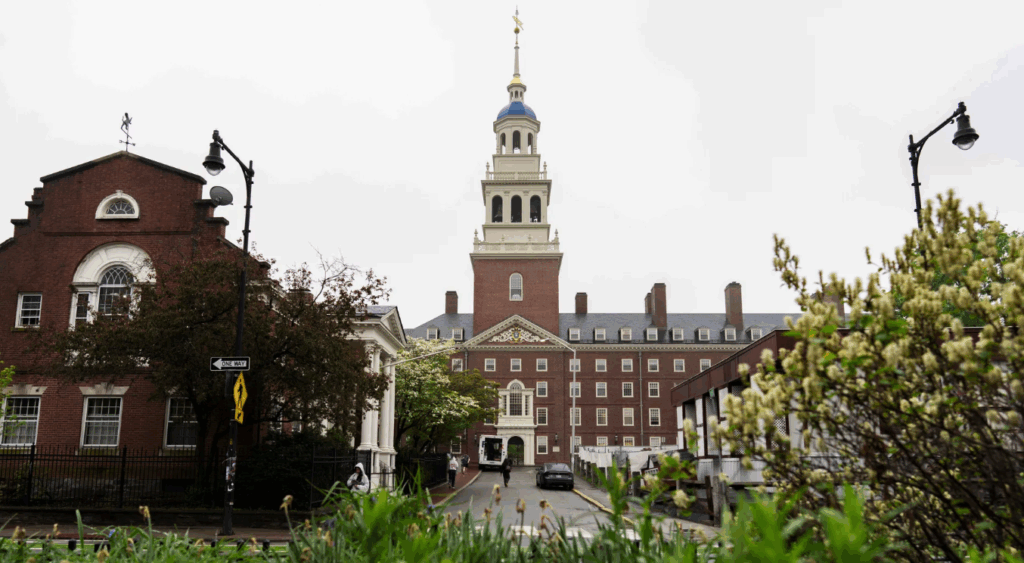Trump’s Agenda Bill
The House recently passed a sweeping tax and spending bill supported by former President Donald Trump. This bill includes tax cuts, increased military spending, and border security funding, but also cuts to programs like Medicaid and SNAP, which has drawn Democratic criticism. It’s expected to influence the midterm elections, though the Senate is likely to modify it, possibly leading to political battles.
The bill extends 2017 tax cuts, boosts the SALT deduction, and eliminates taxes on tips and overtime, costing billions. It also cuts $700 billion from Medicaid and $290 billion from SNAP, with added military and border spending of $150 billion each.
Political Impact: Republicans see it as a voter energizer, while Democrats use it in attack ads, highlighting the potential $2.3 trillion deficit increase.

Harvard Restrictions
The Trump administration has barred Harvard University from enrolling international students, a move by the Department of Homeland Security. This decision, part of a dispute, requires existing students to transfer or lose status, with Harvard calling it unlawful and planning legal action.
Details: Harvard, with 6,793 international students last year, must submit records of student activities within 72 hours to potentially restore enrollment rights, impacting finances and research.
Detailed Breakdown of Trump’s Agenda Bill
On May 22, 2025, the House of Representatives passed a sprawling tax and spending bill backed by former President Donald Trump, often referred to as his “big, beautiful bill.” The legislation passed by a single vote, with nearly all Republicans in favor and all Democrats opposed, as reported by NBC News. The bill includes a range of provisions aimed at fulfilling Trump’s policy priorities:
Tax Cuts Extension: Extends the 2017 Trump tax cuts through 2028, increases the state and local tax (SALT) deduction cap to $40,000 for households earning less than $500,000, and preserves the carried interest loophole. It also eliminates taxes on tips (estimated cost: $40 billion) and overtime pay (estimated cost: $124 billion), introduces an auto-loan interest deduction, expands the child tax credit to $2,500, and offers senior deductions, as detailed by NBC News.
Social Program Cuts: Cuts $700 billion from Medicaid by imposing stricter work requirements for able-bodied adults under 65, requiring frequent eligibility checks, and verifying legal status. It also cuts $290 billion from the Supplemental Nutrition Assistance Program (SNAP) by raising work requirements for adults under 65, previously under 55 without children, as noted by NBC News.
Military and Border Security: Allocates $150 billion for border security, including funding for mass deportation, completing the U.S.-Mexico border barrier, and boosting Customs and Border Protection. It also provides a one-time $150 billion boost for military spending on shipbuilding, air and missile defense, nuclear forces, and cybersecurity, as reported by PBS NewsHour.
Other Provisions: Introduces “Trump Accounts,” tax-preferred savings accounts for children with a $1,000 government deposit and the ability for parents to add $5,000 annually until the child turns 18. These funds can be used for education, home down payments, or starting a business, originally called “MAGA” accounts but renamed via amendment, as covered by CNBC.
The bill is expected to add $2.3 trillion to the federal deficit over 10 years and raise the debt ceiling by $4 trillion ahead of a mid-July deadline to avoid default, as reported by The Guardian. Republicans believe it will energize Trump voters and influence swing-state lawmakers in the midterm elections, while Democrats have already begun using the bill in attack ads, criticizing its cuts to social programs and fiscal impact, as noted by ABC News.
Detailed Breakdown of Harvard Restrictions on International Students
On May 22, 2025, the Trump administration revoked Harvard University’s ability to enroll international students, a decision made by the Department of Homeland Security (DHS), as reported by CNN. DHS terminated Harvard’s certification under the Student and Exchange Visitor Program (SEVP), prohibiting the university from enrolling “aliens on F- or J- nonimmigrant status” for the upcoming academic year. Existing international students must transfer to other schools or risk losing their legal status, as noted by Reuters.

Harvard had 6,793 international students enrolled in 2024-2025, representing 27% of total enrollment, with a total international academic population of 9,970, as per Harvard’s international student data. International students are more likely to pay full tuition, contributing significantly to revenue, especially given Harvard’s $53.2 billion endowment, with 80% earmarked and 20% available for sustainability, some of which is illiquid, as reported by CNN.
The decision could disrupt Harvard’s research capabilities, with potential layoffs at Harvard Medical School and stop-work orders at the School of Public Health, as noted by CNN.
Conditions for Restoration and Legal Challenges
Harvard must submit records of any “illegal,” “dangerous,” or threatening activities by students over the past five years, including disciplinary actions and protest footage, within 72 hours, as demanded by DHS Secretary Kristi Noem, according to Al Jazeera. Harvard has called the action “unlawful” and is working on guidance for affected students, with attorney Bradley Bruce Banias noting potential for a strong legal challenge, especially given a recent federal judge’s ruling blocking similar moves, as reported by CNN.



+ There are no comments
Add yours